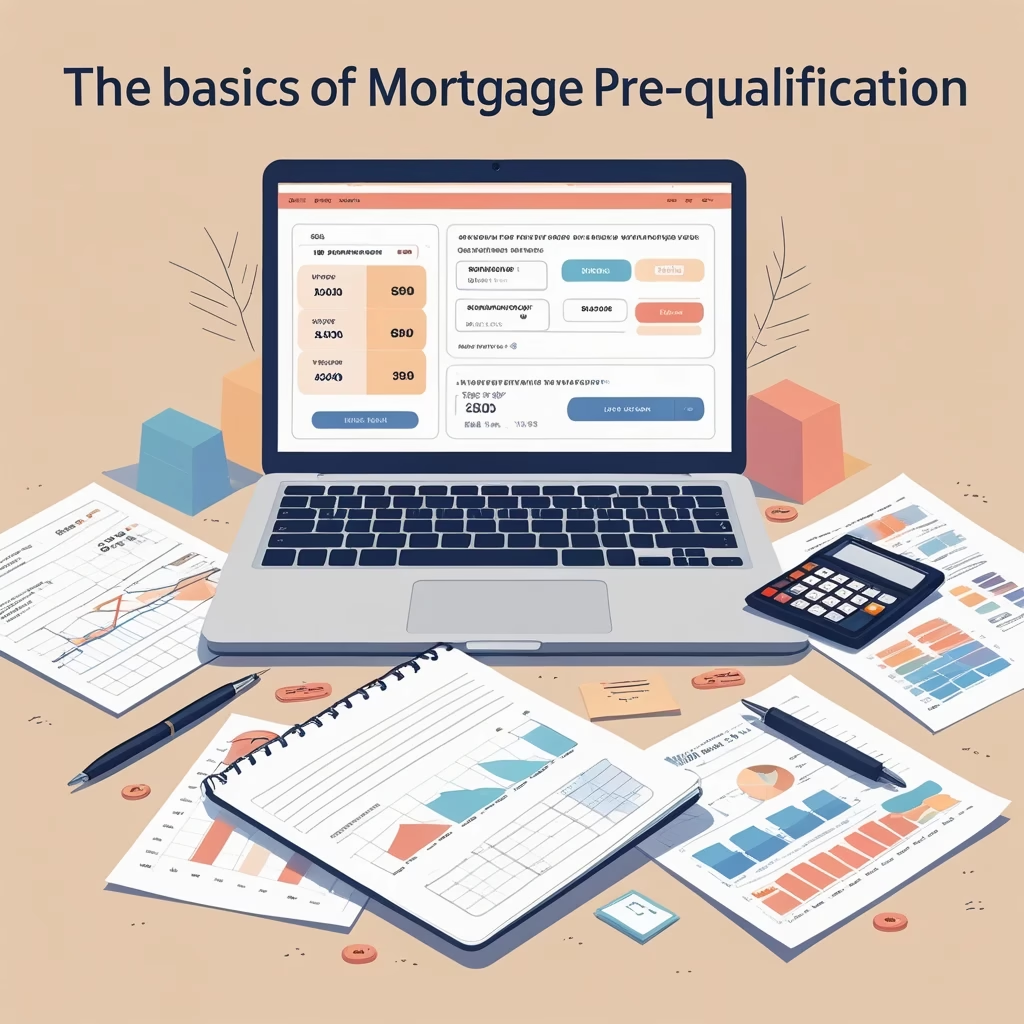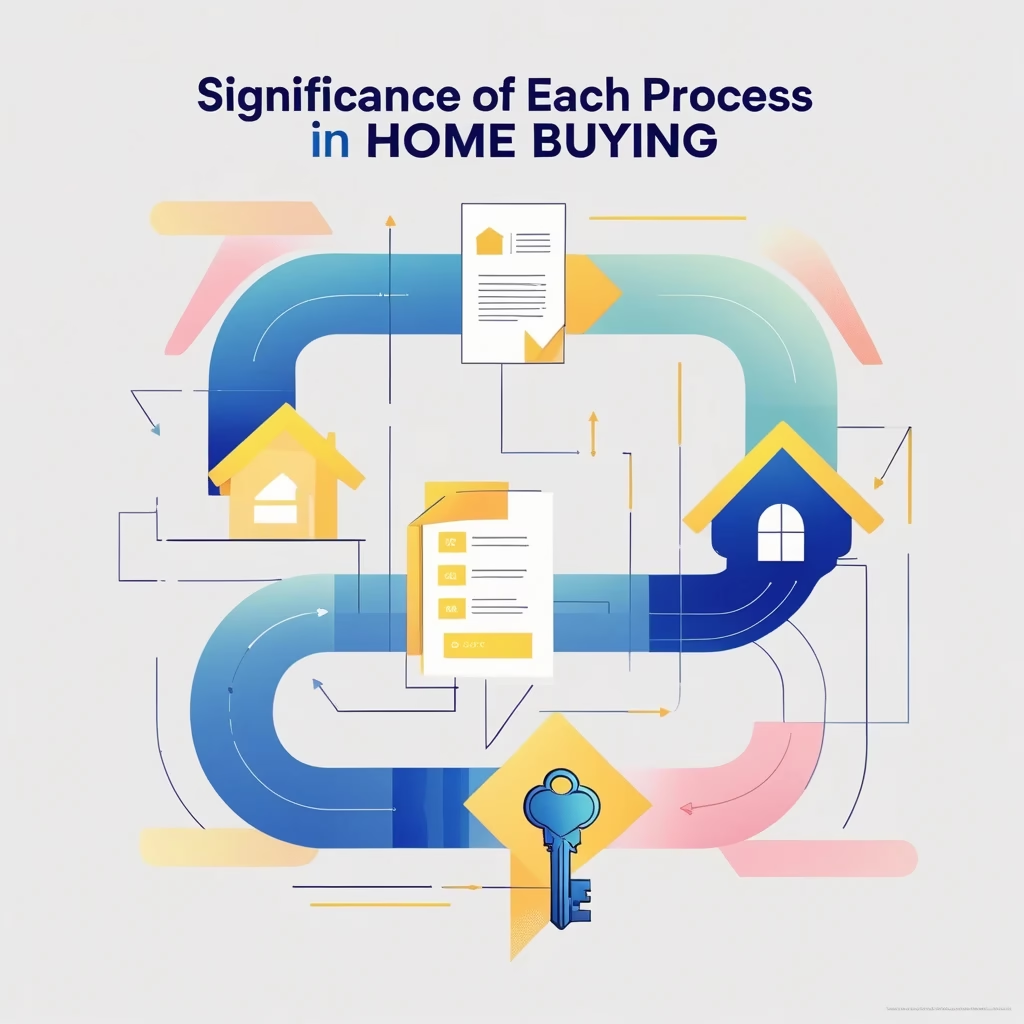A Brave New World of Home Financing
Have you ever considered buying a home but felt overwhelmed by the complex financing options? Navigating the world of mortgages can be daunting for many would-be homeowners. A fundamental aspect of this journey is understanding the difference between mortgage pre-approval and pre-qualification. This distinction can significantly impact your home buying experience, but it often remains misunderstood by many prospective buyers.
From now on, we will delve deeply into the nuances of these two critical elements in the mortgage process, providing a comprehensive guide to ensure you are well-informed and prepared for what lies ahead. Whether you’re a first-time homebuyer or looking to purchase your next property, understanding these key differences can simplify the process and empower you to make sound financial decisions.
The Basics of Mortgage Pre-Qualification

Mortgage pre-qualification is often the first step for prospective home buyers. It is a relatively informal assessment of a borrower’s financial situation, allowing both the lender and the borrower to understand better how much the borrower might qualify to borrow. Pre-qualification is based on self-reported information about your income, assets, debts, and employment status.
| Aspect | Pre-Qualification | Pre-Approval |
|---|---|---|
| Formality | Informal | Formal |
| Use of Credit Score | Not Required | Required |
| Commitment from Lender | None | Conditional Offer |
| Timeframe | Immediate | Longer Process |
| Documentation | Minimal | Extensive |
The process of pre-qualification is quick and can often be done online or over a phone call. The major advantage of this process is that it allows you to estimate the amount you might be able to afford when shopping for a home. However, because it is based on unverified information, it carries less weight than a pre-approval status when negotiating with sellers.
Diving Deeper: The Mortgage Pre-Approval Process
Unlike pre-qualification, mortgage pre-approval is a more formalized and rigorous process. It involves a lender conducting a thorough check of your financial background and credit history. To obtain pre-approval, you must complete a mortgage application and provide documentation such as proof of income, tax returns, and bank statements.
This deeper dive into your financial situation means that pre-approval gives a more accurate picture of what you can afford and signals to sellers that you are a serious buyer. With pre-approval, you receive a conditional commitment from the lender on the loan amount they are willing to extend, subject to a satisfactory property appraisal.
“Pre-approval is like having a head start in a marathon. It gives you a competitive edge in the property buying race.”
Significance of Each Process in Home Buying

Both pre-qualification and pre-approval have unique roles in the home buying process. Pre-qualification serves as an initial step to understand your budget and what you might expect from lenders. It provides a broad estimate, which can be useful during the early stages of house hunting. Pre-approval, however, steps it up a notch by offering some assurance to sellers and real estate agents that you are financially prepared.
While pre-qualification can be seen as a helpful starting point, pre-approval is often a critical step when you are ready to put in offers on homes, as it provides a stronger negotiating position. Being pre-approved could mean the difference between winning or losing your dream home, especially in competitive markets where sellers are looking for serious buyers.
Impact on Your Home Buying Strategy
Understanding the impact of pre-qualification and pre-approval can greatly shape your home buying strategy. Here are some considerations:
1- Timing: Initiate the pre-qualification when you start browsing for homes, as it provides a baseline for your budget.
2- Budgeting: Use pre-qualification to explore different price ranges without affecting your credit score.
3- Offer Making: Rely on pre-approval when you’re ready to make serious offers; it demonstrates your financial credibility.
4- Market Conditions: Prioritize getting pre-approved in hot markets where competition is fierce, and offers are numerous.
Employing these strategies can provide an edge in the home buying process, transforming you into a proactive, informed buyer.
Common Misconceptions About Pre-Qualification and Pre-Approval
A prevalent misconception is that pre-qualification and pre-approval are interchangeable terms. While both aim to provide an insight into your borrowing capabilities, the difference lies in the level of scrutiny and the information’s reliability. Pre-qualification is sometimes mistakenly perceived as being sufficient to entice sellers. However, since it does not involve a credit check or verification of information, it lacks the formal backing that sellers often require.
Another common misunderstanding is that the pre-approval equates to a guaranteed loan. While it is indeed a positive step towards securing a mortgage, it is not a final approval. Several other conditions must still be met, such as a satisfactory property appraisal and ongoing credit stability.
Benefits of Pre-Approval Over Pre-Qualification
The advantages of mortgage pre-approval over pre-qualification are manifold. Firstly, pre-approval includes a conditional commitment from the lender, providing reassurance to sellers that you have the means to purchase the property in question. Secondly, pre-approval includes a formal review of your credit, giving a closer estimate of what you can afford.
Furthermore, being pre-approved may expedite the closing process, as most of the legwork on your financial background has been completed. This can be especially beneficial in markets with fast-moving real estate opportunities, where being able to act quickly is crucial.
FAQ – Common Questions
What is the primary difference between pre-qualification and pre-approval?
The primary difference is that pre-qualification is an informal assessment with limited verification of financial information, while pre-approval involves a thorough and formal evaluation of your financial status, including a credit check.
Does getting pre-qualified or pre-approved affect my credit score?
Pre-qualification usually does not affect your credit score as it does not typically involve a credit check. Pre-approval, however, involves a hard credit inquiry, which may have a slight impact on your credit score.
How long does pre-approval last?
A pre-approval letter is generally valid for 60 to 90 days, though this can vary depending on the lender. It’s important to ensure your financial situation remains stable during this period.
Can I get pre-approved by multiple lenders?
Yes, you can apply for pre-approval with multiple lenders to compare offers. However, it’s advisable to do this within a short window, typically 14-45 days, to minimize the impact on your credit score.
Is pre-qualification necessary before pre-approval?
While not mandatory, pre-qualification can be useful to get an initial idea of your borrowing capacity. It can serve as a stepping stone before proceeding to the more rigorous pre-approval process.
How long does the pre-approval process take?
The pre-approval process can take a few days to a couple of weeks, depending on the lender’s responsiveness and the completeness of your documentation.
Making Informed Decisions for a Confident Home Buying Journey
Understanding the difference between mortgage pre-qualification and pre-approval is critical for anyone on the path to home ownership. While both steps play unique roles, pre-approval offers clear advantages when making offers and negotiating with sellers. As you navigate the home buying process, ensure you’re leveraging the right tool for your situation, balancing immediacy with thoroughness. By doing so, you empower yourself to make informed decisions, laying the groundwork for a successful and fulfilling home buying experience. Empower yourself with knowledge and take decisive steps towards achieving your dream home.





